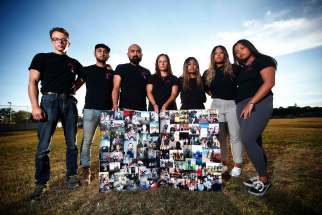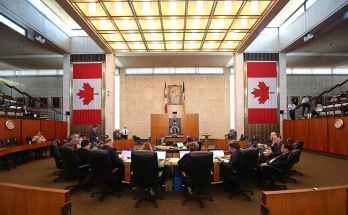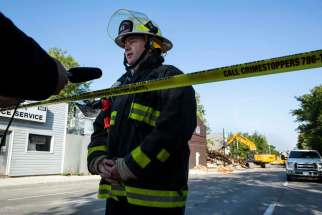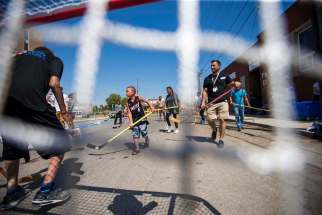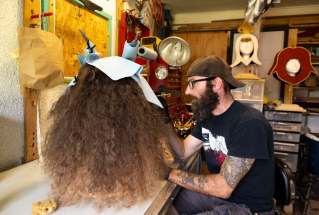Treatment centre battleground Opponent's cruel words bolster devastated family's case for rehab facility
Read this article for free:
or
Already have an account? Log in here »
To continue reading, please subscribe:
Monthly Digital Subscription
$1 per week for 24 weeks*
- Enjoy unlimited reading on winnipegfreepress.com
- Read the E-Edition, our digital replica newspaper
- Access News Break, our award-winning app
- Play interactive puzzles
*Billed as $4 plus GST every four weeks. Offer only available to new and qualified returning subscribers. Cancel any time.
Read unlimited articles for free today:
or
Already have an account? Log in here »
Hey there, time traveller!
This article was published 15/08/2018 (2393 days ago), so information in it may no longer be current.
The hall at Sturgeon Heights Community Centre fills up not long after the doors open. Folks stream in from the sunny outdoors, talking to each other in tense conversations. It’s hard not to notice how many are wearing white shirts.
This is an information session about the Bruce Oake Recovery Centre, a new addiction treatment facility slated to rise four kilometres away, on the site of the old Vimy Arena; the white shirts are a tacit statement of opposition.
For hours, people file through the hall, looking at architectural renderings and chatting with facility representatives. They have concerns, and are quick to list them: they want the site to be green space. They’re worried about crime.
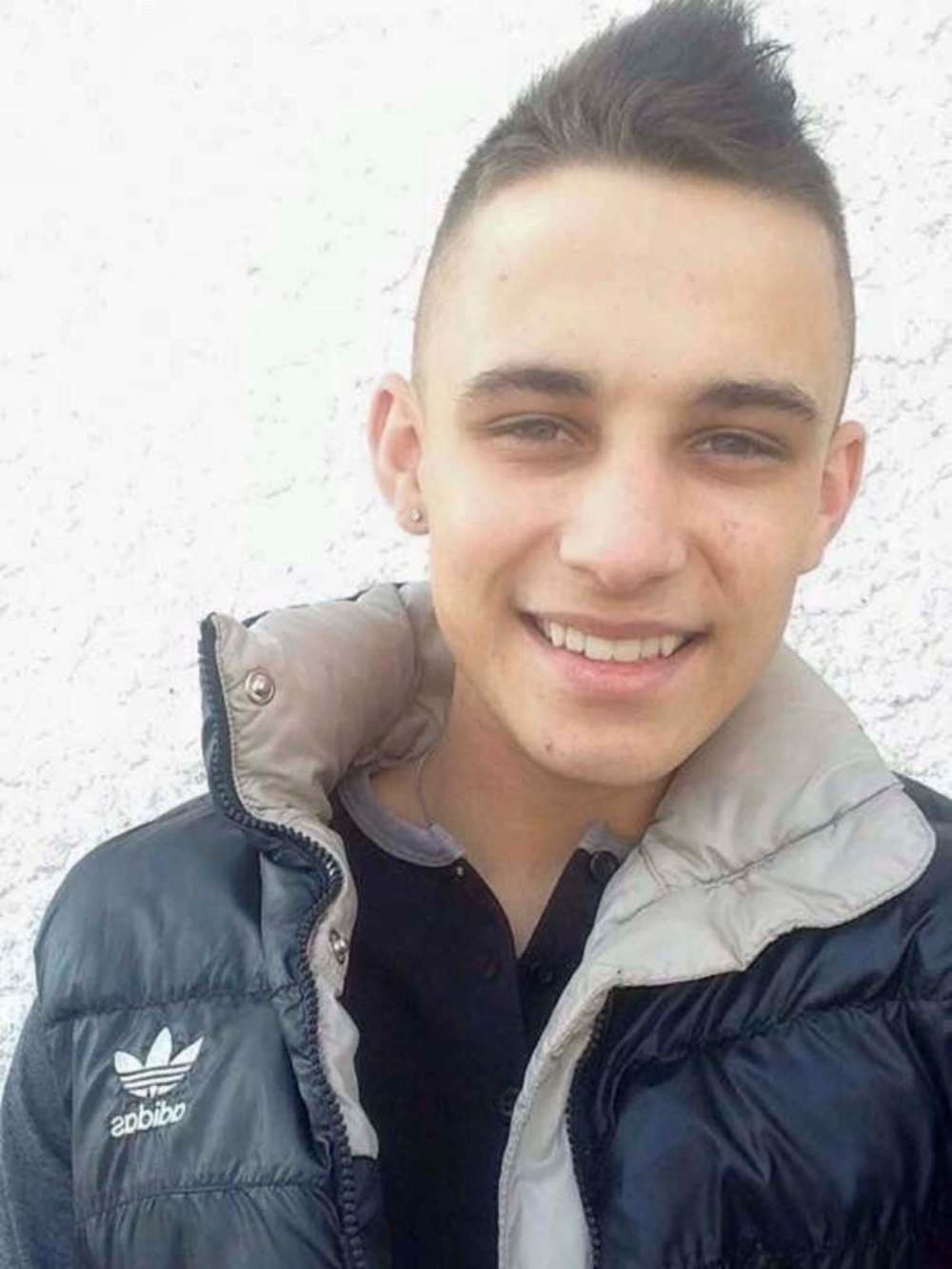
It’s fine if the facility gets built, one woman says. Just build it somewhere else. Anywhere else but there.
At the far end of the room, Rodell Bautista and his wife Jen stand surrounded by a small crowd of people. They are wearing matching black shirts; over and over again, they explain what brought them here, to this meeting.
They are a beautiful couple. For two decades, they’ve built a big, jovial Brady Bunch family: it was her two sons plus his two kids, plus the two daughters they had together. Somehow, it added up to a bustling but happy whole.
As the years turned, the kids grew into bright young adults, full of potential, full of life. They mingled their lives, and today they are all so close: the oldest of the bunch, Jen’s son Dylan, is 25. Their youngest, Nikaya, is 14.
Only now, one is missing: Gabriel Pereira, Jen’s second-born. And he is the reason they’re here.
To one side of the hall, the whole clan stands behind a pair of poster boards, filled with pictures of Gabriel. They made the collage for his funeral, two weeks earlier, and now they hold them to support the Bruce Oake Centre.
There are 20 years of photos — Gabe’s whole life in photos — and in them he changes. He is a coy toddler in blue corduroy overalls. He is a kid cuddling his newborn sister. He’s a teen with a smile so bright his whole face glows.
A man in a white shirt and a red hat stands in front of Gabriel’s family for a moment, staring at the photos.
“Where were the parents?” he asks, gruffly.
Gabe’s stepsister, 20-year-old Mileena, firms her quivering lip. “They were trying to get him help,” she replies.
The man scowls. “Didn’t try very hard, then,” he says. Then he stalks off, ignoring Mileena’s calls to explain.
● ● ●
This is what that not trying very hard looks like, for the record.
When your son is 17, he tells you he’s been using drugs: cocaine, and now meth. You are devastated, but focused. You scramble to get him into a four-month rehab at the Behavioural Health Foundation in Selkirk.
He does well there. You know, because you are watching: you make the drive out to Selkirk a few times a week. Some other residents don’t have family who visit, so you become their surrogate parents, listening, laughing.
When he graduates from treatment, you are so proud that you’re beaming. Your kid loves life so much, he’s so talented, you knew he would beat this. For a while, he is thriving: he gets a job, gets his first vehicle, writes music.
Suddenly, it crashes down around you. He relapses and gets sucked back into the drug, turning to cheap meth when he can’t afford cocaine. His life is falling apart. He loses his licence, loses his truck, everything collapses.
You push him to get back into treatment. You are relieved when he agrees to call the Addictions Foundation of Manitoba. The AFM schedules him for an intake appointment, but they are busy; he’ll have to wait one month.

One month is too long. By the time the appointment rolls around, your son’s strength to fight the addiction is gone.
So now, you’re back at square one. You take him to the emergency room. You take him to a mental-health facility. You call a community clinic. “Please,” you beg, “I need your help,” and they tell you there’s nowhere to take him.
Bit by bit, your son’s addiction takes over your life. You are trying to keep him safe, or just alive. You become “like the FBI” with his friends, hunting them down whenever he goes missing. You check on him in his bed every night.
You call the cops. You research ways to make him get help. You call 911 for an ambulance multiple times.
You’re stretched so thin you can feel yourself tearing. You have five other kids, and they need you too. And there’s still your job and dinners to make and laundry to do, so what else can you do except stretch just a little bit further?
“I don’t know how to keep this child OK,” you think to yourself, but he’s your kid, so you keep trying.
For his sake, you try to remain upbeat. “You got this,” you tell him, “it’ll all be OK,” but you can’t help but notice the way he is fading, the way he crumples into his knees, the way his million-dollar smile has dulled to a flat grey.
He says things now that don’t make sense. He talks to himself, even when he’s sober. He’s scared. So are you.
“I wish I could go back, and never touch any (drugs),” he tells you. “I wish I could be reborn.”
Finally, this is your last resort: five hours in court, to ask a judge for an involuntary psychiatric hold. It is granted. You race to the police station, then back home to watch cops put your son in handcuffs for the ride to the hospital.
He doesn’t fight it. You kiss him goodbye. “I love you,” you tell him. “They’re going to help you.”
After about 12 hours, the hospital releases him. They tell you that because his psychosis is caused by a meth addiction, they can’t treat him: you will need to find a rehab program. You pick him up, shocked, heartbroken.
So now he’s at home, and you have no idea what to do next. What you don’t know yet is that you’re almost out of time to think about it: he will be with you for just eight days.
Because on July 29, you check on him in his bed. He’s fine; he’s sleeping. You soon fall asleep on the couch. When your husband gently wakes you in the morning, you decide to check on your son one more time.
That’s when you find him.
Now, you’re calling 911. They tell you to lay your son’s body on the floor. You hear your own voice screaming at paramedics to save him, just save him, though the coolness of his skin tells you that he’s already beyond saving.
Suddenly, you’re not a caregiver to a son with addiction anymore. Now, you’re an advocate.
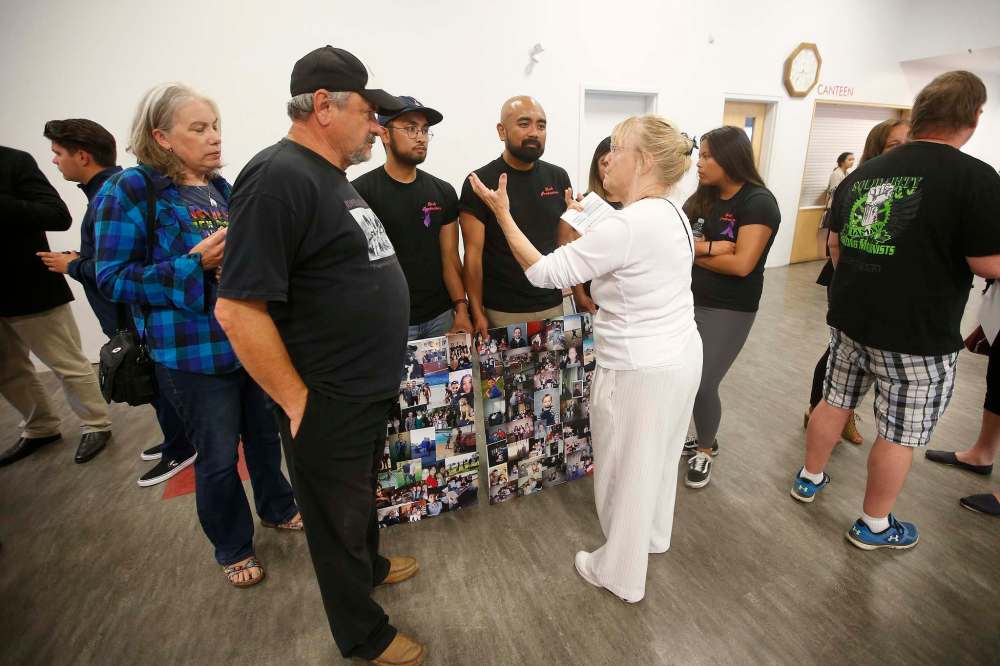
Two weeks later, you’re standing at an information session for a new treatment centre. Trying to speak where your son cannot. Standing while folks in white shirts ask why you didn’t try harder, or just tell your son not to do drugs.
“I’m not even sure how we’re doing it,” Jen says, of that pressure. “But it’s important that people see our faces.”
● ● ●
Between information sessions for the Bruce Oake Centre, Rodell’s phone rings. It’s an official from the Health Sciences Centre. He saw Gabriel’s family in media reports of the meeting, and he wants to offer condolences.
“You could have offered help eight days before he took his own life,” Roddy replies.
It’s not a crack in the system that Gabriel Pereira fell into. It was a chasm. What most people don’t know — until they have to — is that addiction programs are spread like islands, and folks struggle to tread water between them.
There will be 50 beds at the Bruce Oake Centre. Each one could save a life. It is not the end of what is needed in Manitoba to slow the wrecking ball of addiction, it is only the start. A start that, for too many now, doesn’t exist.
Maybe if folks can understand that, the Bautistas think, some sort of change will come. If people knew that people with addictions could be any of their children, and are already in their community now, just trying to survive…
“We don’t want other families to suffer as much as we did,” Roddy says, reflecting on all this later. “The biggest reason that progress hasn’t been made yet, is because of what was voiced (at the information sessions.)
“Until you can imagine trying to get help for your sick child and having nowhere to turn, I don’t think people can relate. The more we can speak, and expose and address those fears, the more awareness there will be.”
After the sessions are over, Roddy and Jen and all their kids — all except Gabriel — go out for dinner. They are exhausted, but together. They tell stories about Gabriel, and laugh, and cry and talk about facing life without him.
That night, they make a promise to each other: from now on, they will never go a day without saying, “I love you.”
melissa.martin@freepress.mb.ca

Melissa Martin
Reporter-at-large
Melissa Martin reports and opines for the Winnipeg Free Press.
Our newsroom depends on a growing audience of readers to power our journalism. If you are not a paid reader, please consider becoming a subscriber.
Our newsroom depends on its audience of readers to power our journalism. Thank you for your support.


